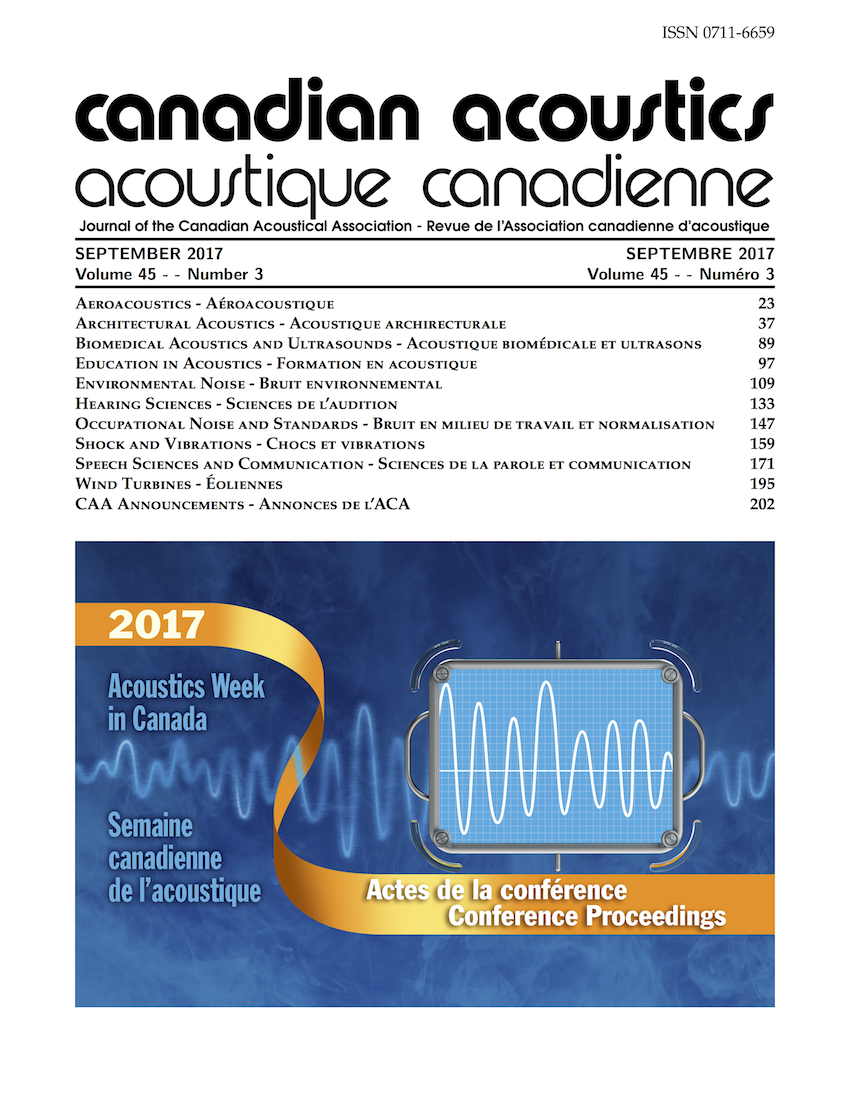HEARING AND MEMORY DEFICITS IN OLDER ADULTS USING TELEHEALTH
Abstract
It is well known that hearing abilities decline with age. Older adults living in rural communities often have to rely on Telehealth to access specialized healthcare. Telehealth systems rely on audio compression algorithms to facilitate transmission of acoustic information through the internet/telephone lines, resulting in degraded speech signals. When older adults hear acoustically degraded speech they have more difficulty remembering the content of these sentences after a delay compared to younger adults. The proposed reason for this deficit is that older adults use more cognitive resources to understand degraded speech compared to younger adults, which draws cognitive resources away from the memory system. Forgetting what was said during a telehealth session can have significant health consequences for older adults. Thus, the goal of the present study was to assess the impact of hearing abilities on the ability to retain information provided during telehealth sessions in older adult users of Telehealth in Newfoundland and Labrador. Participants completed a 29-item self-report questionnaire, including the Hearing Screening Inventory (HSI), which has a high correlation with pure-tone audiometry. Two groups were created: (1) Normal-Hearing, and (2) Hearing-Loss; based on the 25 dB HL cutoff scores from the HSI. Groups did not differ in age, gender or education. The Hearing-Loss group reported significantly more difficulty remembering health information provided during Telehealth sessions compared to the normal-hearing group. More importantly, this effect remained significant when controlling for self-reported memory ability over the past year and for self-reported ability to hear the health-care provider during Telehealth sessions. Overall, this pattern of results suggests that participants in the hearing-loss group had a specific difficulty remembering information provided over a Telehealth system.
Additional Files
Published
How to Cite
Issue
Section
License
Author Licensing Addendum
This Licensing Addendum ("Addendum") is entered into between the undersigned Author(s) and Canadian Acoustics journal published by the Canadian Acoustical Association (hereinafter referred to as the "Publisher"). The Author(s) and the Publisher agree as follows:
-
Retained Rights: The Author(s) retain(s) the following rights:
- The right to reproduce, distribute, and publicly display the Work on the Author's personal website or the website of the Author's institution.
- The right to use the Work in the Author's teaching activities and presentations.
- The right to include the Work in a compilation for the Author's personal use, not for sale.
-
Grant of License: The Author(s) grant(s) to the Publisher a worldwide exclusive license to publish, reproduce, distribute, and display the Work in Canadian Acoustics and any other formats and media deemed appropriate by the Publisher.
-
Attribution: The Publisher agrees to include proper attribution to the Author(s) in all publications and reproductions of the Work.
-
No Conflict: This Addendum is intended to be in harmony with, and not in conflict with, the terms and conditions of the original agreement entered into between the Author(s) and the Publisher.
-
Copyright Clause: Copyright on articles is held by the Author(s). The corresponding Author has the right to grant on behalf of all Authors and does grant on behalf of all Authors, a worldwide exclusive license to the Publisher and its licensees in perpetuity, in all forms, formats, and media (whether known now or created in the future), including but not limited to the rights to publish, reproduce, distribute, display, store, translate, create adaptations, reprints, include within collections, and create summaries, extracts, and/or abstracts of the Contribution.


